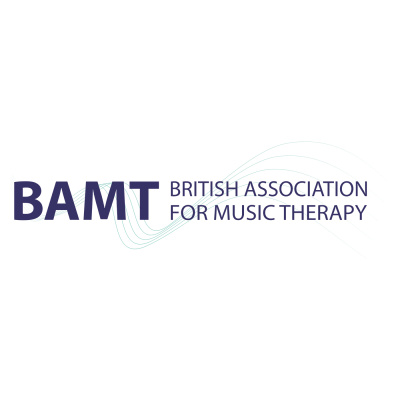Synopsis
The podcast of the British Association for Music Therapy: Conversations with music therapists and other people about music therapy and related topics.
Episodes
-
Ep 21 Andy Lale
05/12/2018 Duration: 57minIn episode 21 of Music Therapy Conversations Luke Annesley talks to Andy Lale. Andy has worked as a music therapist for twenty years. He has been employed by CNWL NHS Trust, in this capacity, since 1999. He manages a team of arts psychotherapists for South Westminster and specialises in music psychotherapy with psychotic states. His clinical work, with this client group, focuses on transference and insight. His MA dissertation on Countertransference Enactment is available in the Tavistock Library. He has taught on the MA in Music Therapy at Roehampton University and now supervises other clinicians in this compound intervention. He also contributes to the ICAPT evening lecture series. Andy has created a series of online videos explaining the key ideas of this way of working. This study is an attempt to encourage interest more widely, in psychoanalytically informed music psychotherapy, for psychosis. Andy presented this study at the BAMT conference, 2018. In this interview, Andy talks about the origin of the t
-
Ep 20 Joanna Eden
14/11/2018 Duration: 57minJoanna Eden is a jazz singer and singer/songwriter based near Cambridge in the UK. She has shared stages with Jamie Cullum, the Buena Vista Social Club & The Blockheads. She mentored a young Sam Smith for nine years and released her 4th album 'Truth Tree' this October. Joanna's career is all about finding a balance between performing, creating and sharing skills and experience. In this varied and exploratory conversation we talked about music education, including some of Joanna’s problematic experiences in her own musical upbringing, what it’s like being a singer fronting a band, and her own song writing process. Jo was a judge on the TV talent show ‘All Together Now’, and she found this a tricky experience for various reasons, which we discuss. She recently took part in a community project for people with dementia, working with music therapists from Anglia Ruskin University, called ‘Together in Sound’. She describes her experience of this project, including how she related to the music therapists, and
-
Ep 19 Liz Coombes
17/10/2018 Duration: 54minLiz Coombes is the course leader of the MA Music Therapy course at the University of South Wales, Newport. Since qualifying as a Music Therapist in 2000 following a BMus degree at Royal Holloway College, University of London, she has specialised in working with children and young people with emotional and behavioural difficulties as well as asylum seekers and refugees. She uses psychodynamic thinking to underpin her work and utilises her considerable experience in community music-making. She has worked on skill-sharing therapeutic music projects since 2009 in Palestine, and in the UK. She has a particular interest in how sharing these skills with non-musicians such as teachers, social workers and carers can enrich their professional practice. She has recently completed her training in Guided Imagery in Music. We talked about Liz’s experience as a community musician, how this links to her music therapy work, what skills music therapists need to develop in training, and working cross-culturally. Coombes, E. (2
-
Ep 18 Gary Ansdell
12/09/2018 Duration: 58minProfessor Gary Ansdell has been a music therapist for thirty years, working mostly in the area of adult mental health in the last decade, and currently in late-life care settings. He has been involved in a wide range of areas of music therapy practice, and in developing the Community Music Therapy movement. Gary has also been active in training and research, developing new Masters and PhD programmes for Nordoff Robbins, where he was Director of Education (2008-15). He has published widely in the areas of music therapy and music and health and is author/co-author of seven books on music therapy, the latest of which include How Music Helps: In Music Therapy & Everyday Life (2014) and with Tia DeNora Musical Pathways in Recovery: Community Music Therapy & Mental Wellbeing (2016). His longterm collaboration with the music sociologist Tia DeNora has led to their joint editorship of the new book series Music and Change for Ashgate Publishers. Gary currently works as an independent music therapy practitioner
-
Ep 17 Julie Whelan
08/08/2018 Duration: 01h11sLuke talks to Julie Whelan, the CEO of Nordoff Robbins. Julie has had extensive experience of senior roles in education, local authority services, government and the charity sector. Her most recent roles were as founding CEO of the Dame Kelly Holmes Trust and in her seven years there she established the charity, it was recognised with a charity excellence award and it supported over 200,000 young people with mentoring programmes. She joined Nordoff Robbins in 2015 and since her arrival the charity has already met its overarching goal to increase by 100% the number of people it can support with its life-changing music therapy. Julie is now leading the trustees and executive team into the next strategic planning process for 2019 -2024. In this interview Julie talks about some of the challenges she has faced in her new role, her personal perspectives on the music therapy profession, the importance of accountability, and lots more.
-
Ep 16 Josephine Davies
18/07/2018 Duration: 53minJosephine Davies is a jazz saxophonist, composer, existential psychotherapist and lecturer. She studied classical and jazz at Guildhall School of Music and Drama in London, and more recently trained at Regents’s University and the New School of Psychotherapy and Counselling. Though she is not a music therapist, Josephine is greatly interested in how therapies of all orientations can help people to access and express their creativity in their own unique ways. She is also deeply influenced by Japanese and Buddhist philosophies that celebrate the qualities of imperfection, impermanence and unity. Marrying these with various existential ideas underpins her view of the person, creative outlook, and more general lifestyle. You can still read Josephine’s Facebook post, which we refer to during the interview, and you can find more examples of her recorded work, as well as gig listings, on her website.
-
Ep 15 Daniel Thomas
20/06/2018 Duration: 53minLuke talks to Daniel Thomas about his process of moving from being a music therapist into running an arts therapy business. This includes to interesting discussion on the nature of 'brands', as well as reflections on how we communicate the subtle nuances fo therapeutic work to other professionals. Daniel qualified as a music therapist in 2002. His past clinical work focused on children and families, especially supporting attachment, bonding and resilience. Daniel has worked in prisons, mental health settings and in special and mainstream schools with children with a range of brain injuries and other conditions He certified in the APCI assessment in 2014, and as a Neurologic Music Therapist in 2017. He is also the Joint Managing Director of Chroma. Daniel is passionate about the business of arts therapies, believing that the economics of therapy is as important an ethical issue for therapists as is the quality of their practice. Working with Dr Vicky Abad, and colleagues from around the world including Aalborg
-
Ep 14 Dr Helen Odell-Miller OBE
16/05/2018 Duration: 50minLuke talks to Helen Odell-Miller about music therapy and psychoanalysis, group work in adult mental health settings, research into music therapy and dementia, and many other things. Dr Helen Odell-Miller OBE is a Professor of Music Therapy, and Director of the Cambridge Institute for Music Therapy Research at Anglia Ruskin University, Cambridge. Helen has lectured widely, and has been a keynote speaker at many national and international conferences in Europe, Australia, Asia and the USA. She has worked with parliament and the government advising on music therapy. Most recently she was one of the Commissioners for the Music and Dementia Strategy in the UK, produced by the International Longevity Centre, and launched at the House of Lords in January 2018: What would life be? Without a Song or Dance, What are We? Helen is co-editor and an author for the books Supervision of Music Therapy (Jessica Kingsley 2009), Forensic Music Therapy (Routledge 2013) and Collaboration and Assistance in Music Therapy Practice
-
Ep 13 Claire Flower
18/04/2018 Duration: 42minEpisode 13 is Luke's interview with Claire Flower. Claire trained as a music therapist at the Guildhall School of Music and Drama. Over the years she has worked in a wide range of settings, as well as running a supervision practice, teaching and examining. She currently works within the Music Therapy team in the Child Development Service at Chelsea and Westminster Hospital, London, where she is joint team lead with Juliet Wood. At present, she is completing her doctoral studies at Nordoff-Robbins. Her practice-led study is an investigation of ways of working with children and parents in a healthcare context. References: Bortoft, H. (2012) Taking Appearances Seriously: The Dynamic Way of Seeing in Goethe and European Thought. Edinburgh, Floris Books. Flower, C., 2014. Music therapy trios with child, parent and therapist: A preliminary qualitative single case study. Psychology of Music, 42(6), pp.839-845. Blogs: http://musictherapyblog.co.uk/ https://www.musiconmymind.co.uk/ http://dariuszgalasinski.co
-
Ep 12 Becky White
01/03/2018 Duration: 52minIn episode 12, which coincides with World Music Therapy Day, Luke Annesley talks to Becky White. Becky teaches clinical improvisation at the University of South Wales and works as an associate lecturer in music therapy at the University of the West of England. She is undertaking PhD research into learning experiences through improvisation of music and music therapy students. The study is arts based, employing qualitative phenomenological interviews combined with improvisations and transcribed with hand-drawn graphic scores. She is a member of the inter-model and inter-disciplinary improvisation research network Concurrent, based at the University of Edinburgh. During this interview Becky refers to a number of papers, including her recent Concurrent study on Voices, which is here. She also references the following: Ferrara, L. (1984) Phenomenology as a Tool for Musical Analysis. The Musical Quarterly, 70(3), pp. 355-373. Wilson, G.B., and MacDonald, R.A. (2016) Musical choices during group free improvisation
-
Ep 11 BAMT AGM Roundtable October 2017
07/02/2018 Duration: 01h10minEpisode 11 is the recording of the panel discussion from the BAMT AGM in October 2017. The panel members were Joy Gravestock, Anna Maratos, Simon Procter, Alexia Quin and Ben Saul, bringing experience from freelance work, the third sector, and the NHS. The discussion, chaired by Luke Annesley in front of an audience of BAMT members, encompassed rates of pay, surviving in the 'age of austerity' and communicating constructively with commissioners and funders. The audience participated fully in the developing conversation.
-
Ep 10 Stella Compton Dickinson
17/01/2018 Duration: 39minIn episode 10 Luke talks to Dr Stella Compton Dickinson about working in forensic settings. Stella is a London-based music therapist, professional oboist, lecturer, UK Council for Psychotherapy registered Cognitive Analytic Therapist and accredited supervisor. She is author of The Clinician’s Guide to Forensic Music Therapy (Jessica Kingsley Publishers) and she has her own private practice and twenty years' experience in the National Health Service as a clinician, Head of Arts Therapies and Clinical Research Lead. Her research was awarded the 2016 Ruskin Medal for the most impactful doctoral research. Stella’s PhD thesis can be found here, and her website is here.
-
Ep 9 Dean Beadle Part 2
06/12/2017 Duration: 46minIn part 2 of Luke's conversation with Dean Beadle, Dean talks in some detail about his experiences of music therapy, going on to talk more generally about the importance of music in his life, both when he was growing up, and today, and ending with some helpful and inspiring advice for the UK music therapy profession.
-
Ep 8 Dean Beadle Part 1
15/11/2017 Duration: 42minThe release of this episode, November the 15th, coincides with European Music Therapy Day. The focus this year is on ‘Hearing Your Voice’. Appropriately, this is the first interview in this series with a music therapy service user. Dean Beadle has toured the UK for a number of years sharing his experiences of life as an autistic person. He has also spoken in Denmark, Belgium, Guernsey and Ireland as well as undertaking four annual seminar tours of Australia and New Zealand. Through his humorous and insightful speeches Dean outlines his positive outlook on his diagnosis. You can see a clip of Dean in 2011 on YouTube. Dean had music therapy as a child in SE London with music therapist Judith Nockolds, which he talks about in part two of this interview, out next month. Part one has a focus on perceptions of autism, including Dean’s own feelings about his diagnosis, and some of the challenges he faced as a child coming to terms with various aspects of his identity. He also draws interesting parallels between au
-
Ep 7 Anna Maratos
11/10/2017 Duration: 57minLuke Annesley talks to Anna Maratos. Anna started her career as a music therapist in adult mental health in 1997, and gradually moved into increasingly senior management positions, culminating in her current post as Head of Arts Psychotherapies in Central and Northwest London NHS Foundation Trust. She talks about her changing strategy towards research, as well as instigating a move towards mentalisation based practice at CNWL. Anna delivered a keynote at the 2014 BAMT conference in Birmingham, in which she attempted to identify common ground between different theoretical perspectives towards music therapy. We discuss whether she still sees divisions within the UK profession, three years on.
-
Ep 6 Julian O'Kelly
05/09/2017 Duration: 45minLuke Annesley talks to Julian O’Kelly about his current research, as well as his doctoral studies at Aalborg University with people with severe head injuries. Julian has published widely on music therapy in palliative care and neuro-disability, and has now ventured in to mental health, co-ordinating a major NHS funded feasibility study on music therapy for chronic depression with East London NHS Foundation Trust. There’s a chance coming up to hear Julian explore the challenges and opportunities for music therapy offered by neuroscience in his forthcoming open lecture at the Royal Hospital for Neuro-disability on Thursday 14 September 2017, 4.30-5.30pm, and he has recently co-edited an ebook, that’s free to download, on the same subject, which you can find here.
-
Ep 5 Mercedes Pavlicevic
08/08/2017 Duration: 50minLuke Annesley talks to Mercedes Pavlicevic, author of many important music therapy texts and Head of the Scientific Committee for the BAMT 2016 conference. Mercedes talks about how the music therapist relates to their environment, including social and political contexts, and possible future directions for the profession. She also talks about research, including her own relationship to empirical positivist approaches, and how research can, and perhaps should, grow out of practice.
-
Ep 4 Auriel Warwick
11/07/2017 Duration: 54minIn Episode 4 of Music Therapy Conversations Luke Annesley talks to Auriel Warwick about her substantial experience of working with children with a diagnosis of autistic spectrum disorder, as well as about the challenges of working in schools, and how to communicate effectively with other professionals about music therapy. But before that, she describes her very first encounter with pioneering music therapist Juliet Alvin…
-
Ep 3 Catherine Carr
11/06/2017 Duration: 42minLuke Annesley talks to Dr Catherine Carr about music therapy research in general, and some of her own research in adult mental health in particular. They discuss the relationship between research and training and some of the challenges that the music therapy researcher faces. Is research inevitably reductive, or are there ways of doing research in music therapy which meet the requirements of evidence-based practice, whilst also capturing the essential details of the work? Perhaps most importantly, what can and should clinicians do to stay up to date with the latest research developments?
-
Ep 2 Leslie Bunt
12/05/2017 Duration: 36minLuke Annesley talks to Leslie Bunt, Professor of Music Therapy at The University of the West of England, author, clinician, and trainer and supervisor in Guided Imagery in Music, about integrative approaches to music therapy, the inherent risks in clinical work, and liminality.














